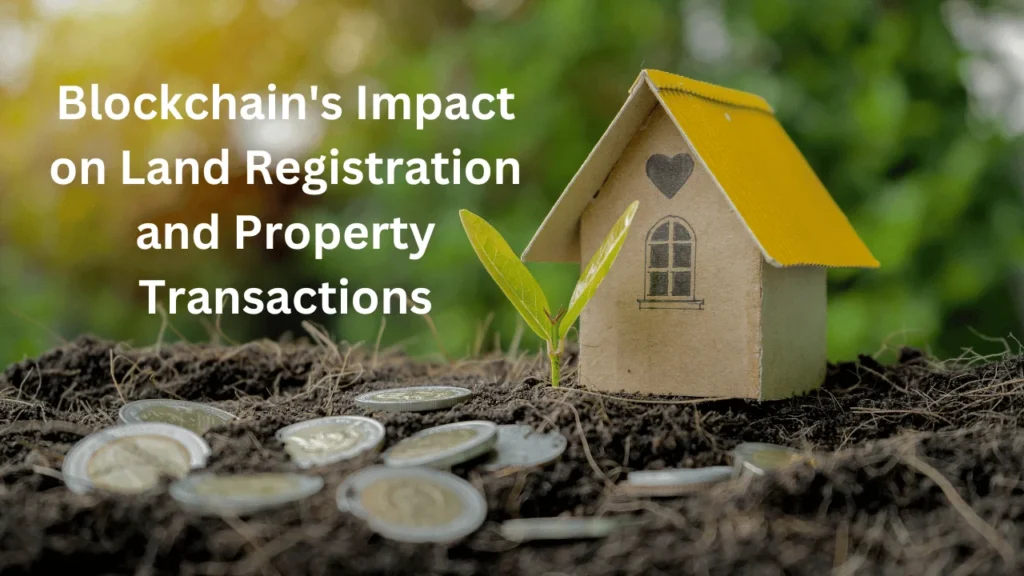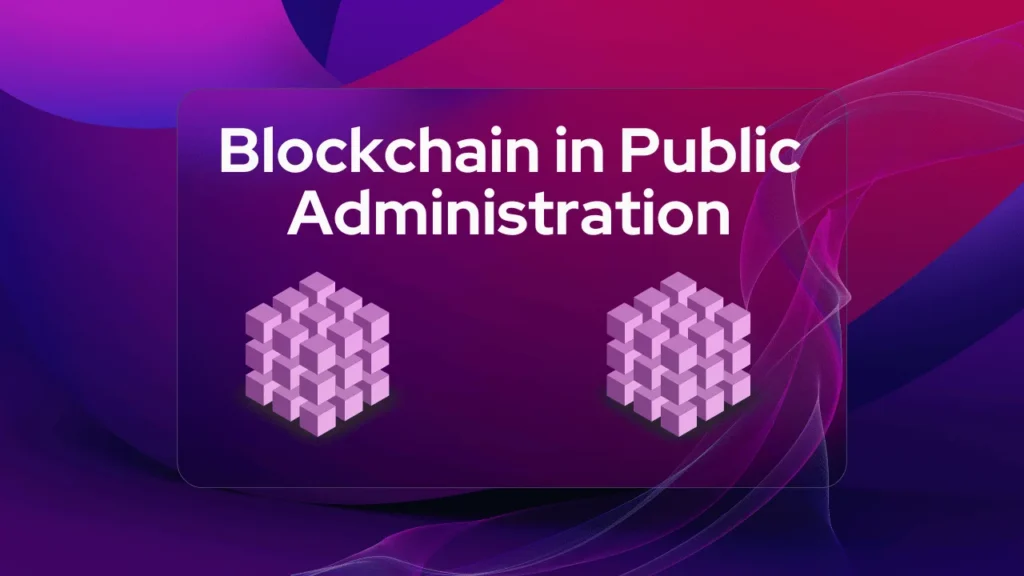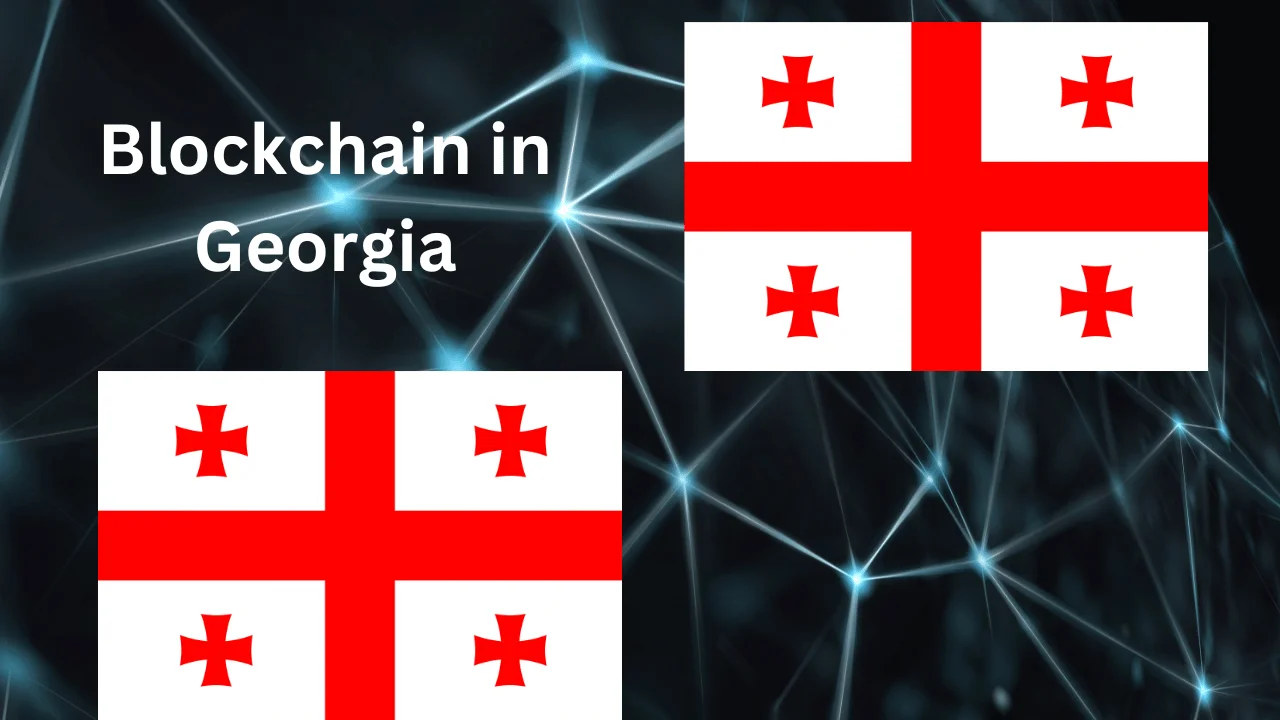The decentralization, transparency, and security that blockchain technology claims to provide have already transformed a number of industries around the world. The widespread adoption of blockchain technology has been a watershed moment in the state of Georgia’s efforts to update its infrastructure and methods of administration. This article delves into the ever-changing world of blockchain in Georgia, highlighting its applications, and crucial role in various sectors such as public administration, land registration, and property transactions.
Georgia’s Blockchain Landscape
When it comes to blockchain technology, the Republic of Georgia is right up there with the leaders. When it comes to property verification, its innovative use of this technology is unmatched. Georgia has been using the Bitcoin blockchain to improve the security and transparency of land titles since 2016 when it partnered with BitFury, a blockchain company. In addition to improving efficiency in government operations, this project has solidified Georgia’s status as an industry leader in blockchain technology.
Blockchain’s Impact on Land Registration and Property Transactions

Enhanced Transparency and Security
The management and verification of land titles in Georgia has been revolutionized by blockchain technology, thanks to its unparalleled security features. Once a transaction is recorded on blockchain, it cannot be changed because of its immutability. This makes the record permanent and unchangeable. Important steps toward lowering the prevalence of fraud and raising confidence among homeowners have been taken because of this.
Streamlining Property Transactions
Property transactions, which formerly involved tedious bureaucratic procedures, have been made simpler with the integration of blockchain technology. Blockchain technology allows for more transparent and speedier transactions, which in turn reduces the time and money needed for property transfers.
Smart Contracts for Efficient Administration
The use of smart contracts within the blockchain framework has been investigated by Georgia as a means to automate and enforce agreements in real estate transactions. With smart contracts, coded conditions trigger automatic execution, doing away with the need for human intervention and the associated risks of human mistake.
Addressing Land Disputes
Problems with land disputes in Georgia have been greatly reduced by the implementation of the blockchain system. Property ownership disputes can be settled more quickly and conclusively with the use of blockchain technology, which provides an immutable, verifiable record of land titles.
Future Prospects and Enhancements
Further advancements and uses of blockchain technology are possible now that it has proven successful in Georgia’s land registration and property transactions. To further improve efficiency and transparency, plans are in the works to incorporate more advanced blockchain functionalities, like improved smart contract protocols.
Blockchain in Public Administration

Modernizing Government Services
When it comes to improving the delivery of public services, blockchain technology is a game-changer. Georgian public services are improving in reliability and accessibility, decreasing bureaucracy, and increasing citizen satisfaction through the digitization of records and the utilization of blockchain for data management.
Enhancing Operational Efficiency
Government agencies’ operational efficiency has been greatly enhanced since blockchain technology was adopted. We can now finish processes in days or even hours instead of weeks, which frees up resources and lets us focus more on service quality.
Reducing Corruption and Enhancing Accountability
The capacity of blockchain technology to reduce corruption is one of its most important effects on public administration. Because blockchain is decentralised and public, all transactions and changes can be easily seen and tracked, which increases responsibility and decreases room for corruption.
Collaboration and Partnerships
In an effort to make public services even more efficient, the Georgian government has been aggressively courting prominent blockchain technology providers for potential partnerships. Through these partnerships, we hope to address the unique challenges faced by the Georgian people with cutting-edge knowledge and creative solutions.
Challenges and Considerations
While blockchain technology has many potential benefits, there are still many obstacles to overcome before it can be fully implemented in public administration. These include creating thorough legal frameworks, educating government employees, and ensuring the public continues to have faith in emerging technology.
Blockchain Enhancements in Financial Services
Facilitating Faster Payments
The use of blockchain technology has brought about a sea change in Georgia’s banking industry, allowing for safer and quicker transactions. It used to take days for transactions to clear and settle, but now financial institutions use blockchain to shorten that time. By facilitating instantaneous monetary transactions, this innovation has greatly increased consumer happiness.
Improving Loan and Credit Processes
The management of credit and loan processes can also benefit from blockchain technology. Financial organizations can keep borrowers’ transaction histories and other sensitive information safer and more transparent with decentralized ledgers. This is good news for lenders and borrowers alike since it leads to more precise risk assessments and, maybe, lower default rates.
Enhancing Regulatory Compliance
Blockchain technology allows banks and other financial institutions to better meet regulatory standards. Blockchain records are immutable, so regulators and banks can more easily trace and audit transactions. This makes sure that all transaction data is accurate and unalterable. This improves the security against fraud and also helps with compliance.
Innovations in Insurance
The Georgia insurance industry has started using blockchain technology for claims processing and anti-fraud purposes. Quicker payouts to policyholders and less chance of fraudulent claims are both made possible by blockchain technology’s immutable and transparent ledger, which enables seamless and automatic policy and claim verification.
Role of Blockchain in Enhancing Business Operations
Supply Chain Transparency
The use of blockchain technology has revolutionized supply chain management by making all transactions completely transparent. Businesses in Georgia are using blockchain technology to monitor their products’ movements from manufacturing to shipping. This eliminates human error and ensures that everyone in the supply chain is on the same page.
Secure Business Contracts
With blockchain and smart contract technology, companies can make and keep their word in legally binding contracts. There is less need for middlemen and less time and money spent on transactions thanks to these digital contracts that execute transactions automatically when certain conditions are satisfied.
Intellectual Property Management
Businesses and creators in Georgia can now safely store and manage their intellectual property assets with the help of blockchain technology. The use of this technology lessens the likelihood of infringement and illegal use by making ownership explicit and protected.
Customer Data Protection
At a time when data breaches are a major worry, blockchain provides a safe method to manage client information. Blockchain improves the security and privacy of consumer data by decentralizing data storage, which lessens the risks connected with centralized data repositories.
Blockchain Startups and Innovations in Georgia
Growth of Local Startups
Startups in Georgia are bringing innovation to the blockchain ecosystem in a variety of industries, including public services, real estate, and finance. These businesses do double duty: they boost the economy and establish Georgia as a leading global center for blockchain innovation.
International Collaborations and Investments
Global tech giants and blockchain enthusiasts have collaborated and invested in Georgia as a result of its international attention. The essential resources and knowledge have been provided by these collaborations, which have been critical in driving blockchain technology’s continued innovation and adoption.
Government Support and Initiatives
The Georgian government has launched multiple initiatives to back blockchain projects and startups after realizing the technology’s promise. Funding, regulatory backing, and the creation of incubators and technology parks are all part of these programs.
Challenges and Future Prospects
Regulatory ambiguity and a lack of qualified workers are two obstacles that the booming Georgia blockchain startup ecosystem must overcome. The continued development and advancement of the blockchain industry depends on resolving these issues.
FAQs
Q: How does blockchain technology improve land registration in Georgia?
Blockchain enhances transparency and security, making land registration processes faster and more resistant to fraud.
Q: What role does BitFury play in Georgia’s blockchain ecosystem?
BitFury collaborates with the Georgian government to implement blockchain in public registry systems and beyond.
Q: How are financial services in Georgia benefiting from blockchain?
Blockchain technology facilitates faster transactions, enhances loan and credit management, and improves compliance in the financial sector.
Q: Can blockchain technology in Georgia help prevent business fraud?
Yes, blockchain ensures transparency and immutability of records, significantly reducing the potential for business fraud.
Q: What future developments are expected in Georgia’s blockchain technology?
Future developments include broader adoption across various sectors, more advanced smart contracts, and continued governmental support for blockchain initiatives.
Must Visit: Best Blockchain Books: Every One Should Read
Conclusion
Ultimately, the adoption of blockchain in Georgia showcases an innovative approach to public administration and governance. Blockchain is foundational to Georgia’s digital transformation initiatives because it solves important problems like land disputes and bureaucratic inefficiency. The role of this technology in shaping Georgia’s future governance and business is expected to grow as it advances, setting an example for other countries to emulate.

Brandy Stewart, an enchanting wordsmith and seasoned blogger, weaves compelling narratives that transport readers to uncharted territories. Infused with perceptive viewpoints and dynamic storytelling, Doris exhibits a command of language that enthralls both hearts and minds, leaving a lasting mark on the literary panorama.

